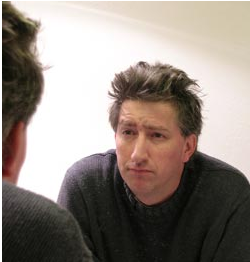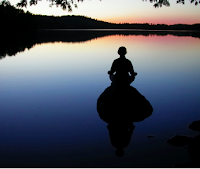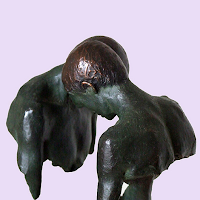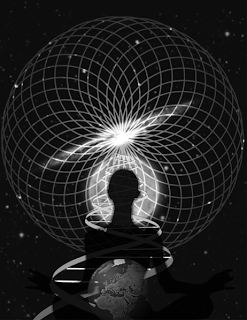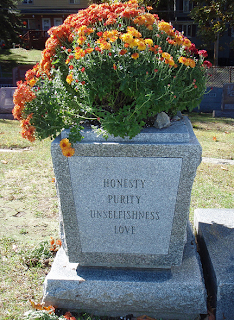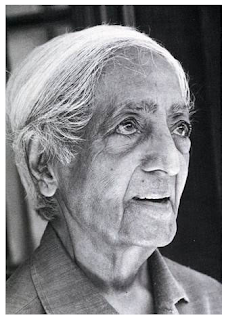Without the Twelve Steps and Twelve Tradition, we would not have the all-important Serenity Prayer, nor would we have the 11th Step Prayer. Additionally, the lessons on daily living drawn from essays on how to "practice" Steps 3, 6, 7, and 11 are vital tools in our "spiritual tool-kit."
This does not mean that I don't take sponsees through the Steps as outlined in the 'Big Book,' or don't strongly recommend to other sponsors that this is what they should do, but I (and many, many others) have found the Twelve Steps and Twelve Traditions to be absolutely essential in attaining, maintaining and improving a conscious contact with the God of our understanding - particularly in tough times.
In times of great emotional stress, sometimes the only thing I have to rely on is the Serenity Prayer. In the 'Big Book' of Alcoholics Anonymous, "taking" Step Three is simply described as reciting - some insist on one's knees - the Third Step prayer set out on page 63. Yet, while one snippet from the Third Step Prayer ("relieve me of the bondage of self") is perhaps my most frequent prayer, having once recited that prayer is not sufficient to practice Step 3 months, or years, later. And this is particularly so in times of grave emotional distress. At such times, even having recited the Third Step Prayer in the morning may not suffice.
This is why Bill W. concludes his essay on "practicing" the Third Step in the Twelve Steps and Twelve Traditions by recommending that we take the following actions in the times of great difficulties we are bound to face:
'In all times of emotional disturbance or indecision, we can pause, ask for quiet, and in the stillness simply say: "God grant me the serenity to accept the things I cannot change, courage to change the things I can, and wisdom to know the difference. Thy will, not mine, be done."'Just as we do not "pause, ask for quiet, and in the stillness" pray just once; neither is what "separates the men from the boys" (according to Bill's "spiritual sponsor," Father Ed Dowling"), the hour we spend at home after sharing our Fifth Step reviewing our progress so far and seeing if we've scrimped anywhere, as Step Six is outlined in the 'Big Book.'
We need to consistently and logically interrelate and weave together the continual process of "self-examination, meditation and prayer" if we are to have "an unshakeable foundation," as it says in Step 11 of the Twelve Steps and Twelve Traditions. To do this, the more help the better I say; and it is likely this attitude that prompted A.A.'s commissioning Bill to write down in essay form his thoughts and experiences with the Steps and Traditions in the first place.
We cannot have too much insight into the nature of, and spiritual solution to, our basic problem - ego-centricity - and there are any number of valuable references outside of the 'Big Book' that are of assistance to the newcomer and old-timer alike.
Indeed, in the "Co-Founders of Alcoholics Anonymous" pamphlet, Dr. Bob states quite plainly that he 'cultivated' the habit of reading an average of one hour a day from a variety of sources over the 15 years of his sobriety. (The key concept here being the variety of sources, rather than the amount of time spent reading.)
In its group consciouness, Alcoholics Anonymous saw fit to publish nine separate books and a wide variety of pamphlets, as well as setting up the "Grapevine" and The AA Grapevine Inc., to publish what the General Service Conference recognized as "the international journal of Alcoholics Anonymous," and a treasure trove of other material helpful to the recovering alcoholic addict.
To say that we should narrowly restrict our study to just the 'Big Book' and to shun at all costs the Twelve Steps and Twelve Traditions is precisely the attitude that Doctor Bob warned of in his last major talk (published in the "Co-founders" pamphlet), when he observed:
"We are all inclined to have pretty closed minds, pretty tightly closed. That's one reason why some people find our spiritual teaching difficult. They don't want to find out too much about it, for various personal reasons . . . "















